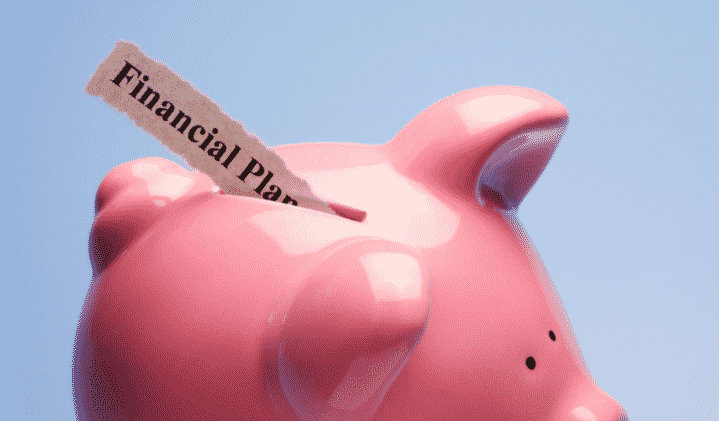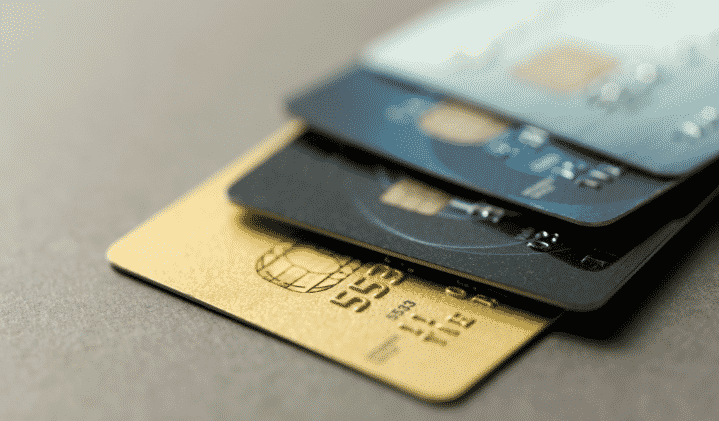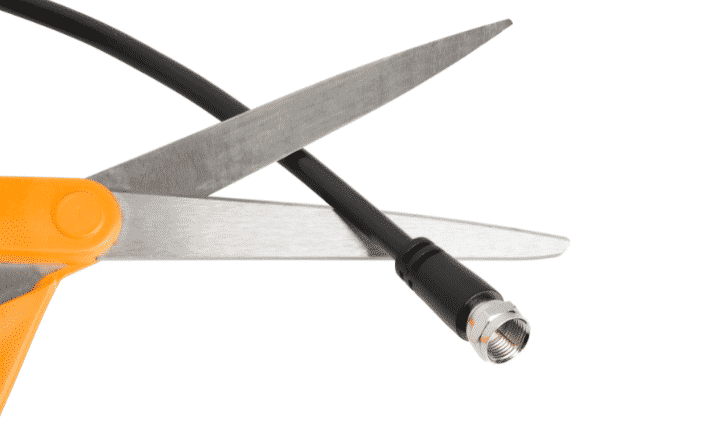All of us have some ideas about where we wish to stand financially over a certain period of time. Unfortunately, most of these goals remain in our minds and we fail to achieve financial stability despite our best efforts.
There could be several reasons this occurs. But one of the main reasons is our own inability to do budgeting. Sometimes, we just think of how to make a budget and do nothing. As a result, we end up overspending when it’s not absolutely necessary. Sometimes, we get into debt because of our spending habits.
If you’re among such persons who are thinking of how to become financially stable, there’s nothing to really worry about. Because it’s still not too late. There are as many as 15 budgeting tips to make you financially stable that you could use easily and achieve your financial dreams over a span of time.
Therefore, in this article, I will write about some realistic budgeting tips that could help you become financially stable.
Let’s start by exploring what financial stability is and the reasons you should be financially stable.
Understanding Financial Stability
In simplest terms, financial stability is having enough money at hand so that you can meet all expenses and yet have enough cash in your bank account, investments, or at hand for any emergencies or sudden expenses.
That means you don’t have to take loans or credit except for home mortgages or other important purchases in life. And you also have enough money for retirement, for those golden years when you’ll no longer be earning an active income.
Financial stability is important because it boosts your credit score. Above all, it leaves you stress-free where money is concerned. You don’t need to worry about inflation or its effects or even think about where your basic needs, as well as wants, would come through. Briefly, it means you have enough money now and for the future as well.
Furthermore, financial stability gives you a stress-free life. You can go on a holiday or vacation without worrying about the expenses or without disturbing your lifestyle and budget. Therefore, the only way to become financially stable is to use these top 15 budgeting tips I will discuss now.
What is Budgeting?
Budgeting basically means planning how much money you wish to spend and saving from your income daily, weekly, and every month. It means allotting a specific amount of money for a particular expense and staying within that limit as much as possible.
Understandably, there could be occasions where you might need to spend some extra cash for a specific need or expense. That’s reasonable as long as it’s a one-off and doesn’t become a routine feature. Exceeding the budget can derail your financial stability.
15 Budgeting Tips for Financial Stability
These 15 tips will give you good budgeting ideas and are something I use personally, too. And they’ve given me the financial stability that I’m looking for. You, too, could use these time-tested and proven tips for budgeting and achieving financial stability.
However, achieving financial stability does take some effort and prudence. It’s not an overnight process. This means you’ll have to work seriously with these tips over a period of time if you’re serious about achieving financial stability.
1. Make a Financial Plan

Making a financial plan is the first thing and most important tip I give to everyone who asks me about how to become financially stable. That’s because it’s impossible to do budgeting if you don’t have a superb financial plan.
As the old adage goes: “Failing to plan is planning to fail.” Therefore, draw a good financial plan for your household.
A financial plan should include your short-term, mid-term, and long-term goals for money. That means you need to decide how much money you should have as savings and investments within a few months, at the end of a year, and, say, after five years.
Plan how much money you would need at the time of retirement to spend those golden years.
Once you have a financial plan, the problem of how to make a budget becomes much easier. It gives you a clear roadmap of what you wish to do with your money, the amount you wish to spend, save and invest.
Often, we’re unable to make a superb financial plan. That’s nothing to worry about. If that’s your case, hire the services of a good freelance financial consultant. They will charge you per hour.
A good financial consultant can guide you on how to plan your finances depending on your income and expenses and show you where to invest to make your money grow.
2. Start with Zero Budget

Always start your new month with a zero budget. Therefore, the first thing that you need to do is stash away any money left from the previous month at your bank or invest it wisely. Never carry it forward to meet expenses for the next month.
There’s a reason I say this. When you start with a zero, budgeting becomes much easier. A zero budget means taking into account only all your necessary expenses.
That includes food, home mortgage, insurance premiums, expenses on education, and other unavoidable expenses. Add them up to arrive at a figure. I’ll repeat: cut out all unnecessary and avoidable expenses from your zero budget.
The figure you arrive at gives you a clear idea about how much to spend under which expense head during the month, minus this amount from your income. That means the balance would reflect how much money you could save.
Read: How Much Money Should You Really Save Every Month?
3. Use the Magical Savings Formula

Above, I’ve written about deducting your expenses from your savings to give you a clear idea of how much money you can save. But for budgeting, use this magical formula. And that is: Income minus Savings equals Expenses (Income-Savings= Expenses).
This means, first, you deduct how much money you wish to save every month to make you financially stable. And whatever amount of money that remains should be your expenses.
Now, this might sound a bit harsh or even unrealistic. But it’s not. Indeed, doing so is very simple.
When you deduct your savings from your income, the amount of money left over is your budget for spending during that month. Since the savings are in line with your goal of achieving financial stability, you have to fit in all your expenses within that available budget in order to save money from your limited income.
In the beginning, you might have to make a few adjustments to arrive at a realistic budget for expenses and savings. However, within a month or two, you will have a clearer picture of how much your budget for expenses should be realistic.
Here, it’s most important to stick to this budget if you’re serious about being financially stable. It can be very tempting to dig money from your savings for more expenses, which is to be avoided at all costs- literally.
4. Pay Off Student Loan

Most budgets fail because of debt. A student loan is a debt that very few people consider while budgeting. As a matter of fact, some 45 million students across America owe a whopping $1.7 trillion to banks, credit unions, and various other lenders.
On average, each student carries a debt of $30,000 when they graduate.
Student loans or student debts or student credit, as they know, tend to cause a lot of financial problems in your life. They’re said to delay your progress in life by as many as seven years. House ownership is delayed, and so is marriage.
Therefore, while drawing your budget, also include the amount of money you have to pay off to clear your student loan.
As a matter of fact, I would go one step further and encourage you to step up repayments of your student loan. Check how much money you’re paying right now as student loan repayment and how long it would take you to clear the total debt at this rate.
Make a budget for stepping up the repayment because you could save a lot of money on interest this way. And these savings can be utilized for investments.
5. Wipe Out Credit Card Bills

Often, people advise that it’s best to cut up your credit card and dispose of it. That’s wrong. Having a credit card isn’t bad. It helps you build a healthy credit score if you use one the right way. A credit card also puts spending power in your hand, especially in times of emergency. Therefore, I’m not in favour of disposing of your credit card.
However, I suggest you wipe out all the outstanding bills on your credit card. That’s because outstanding dues on credit cards attract something known as the Annual Purchase Rate or APR. Most credit cards allow you to settle only part of the bill after each billing cycle. And they add APR on the dues you leave unpaid.
However, if you don’t pay the bill in full the next month, this APR and the outstanding amount attract more APR. Eventually, you might end up paying double the price of what you’ve bought on a credit card due to the compounding APR.
Wiping out credit card dues in full helps you to save a lot of money that would otherwise go as APR. If you’re unable to settle the full bill, I would recommend strongly that you at least step up your monthly repayments so that the bill eventually comes down to zero.
Another thing about credit cards is that they put a lot of buying power in your hands. Therefore, this can lead to shopping binges or buying stuff that we don’t really require. You’ll require strict spending habits to keep a check on your credit card expenses.
Refer: How To Use a Credit Card? 12 Tips for First Time Users
6. Reduce Your Liquor and Tobacco Bills

If you consume alcohol and smoke, it’s always possible to reduce your expenses on the stuff. This is possible by creating a smaller budget for alcohol and tobacco than what you’re currently spending.
I’m not opposed to anyone enjoying liquor or tobacco. Some recreational use of alcohol and tobacco does have beneficial effects on your health.
Check how much money you’re spending every month on alcohol and tobacco. Find whether you can lower these expenses in any way. There’s no need to buy a lot of liquor and store it in the house unless you’re living in some remote place. You can always buy stocks when necessary.
Also Read: How to Get Paid to Quit Smoking & Make $2000+ in 2024
7. Understand the Time Value of Money

Understanding the Time Value of Money is very important for budgeting. Most people ignore this important calculation because they’re unaware of what the Time Value of Money actually means.
Therefore, I will explain how the Time Value of Money works. Consider you have $200 in your pocket right now. Of these, you save $100 in your bank account. And the other $100 you stash away at home.
After one year, the $100 in your bank becomes $104.50 by earning an interest rate of 4.5 per cent per annum. However, the money you’ve stashed away at home remains $100 and hasn’t gathered any interest.
If, during the year, inflation has grown by 4.5 per cent, then the money you kept at the bank is still worth $100. However, the $100 that you kept at home has lost value over the last year. It’s now worth only $95.50 due to the Time Value of Money.
While you’re budgeting, ensure that you save and invest in a manner that your money grows and fetches more returns than what you would lose through the Time Value of Money. For example, if you invested $100 in stocks and got $108 in return over a year, your profit would still be $3.50 despite the Time Value of Money losses.
8. Use Budgeting Apps

One of the best ways to stay within a specific budget is to use these budgeting apps. There are plenty of these apps available for free use or even on subscription with additional features such as the ability to invest directly.
You can create various expense heads on these budgeting apps and allot a specific amount of money under each head. You can also link your bank account, credit cards, and debit cards to these apps.
Whenever you spend, the app automatically tracks your expenses. Or you can manually feed in the expense on the app. The app warns you whenever you’re nearing the expense limit under a specific head. And it also alerts you if you’re crossing a specific budget.
These budgeting apps are ideal for those who can’t maintain accounts of their income, expenses, and savings manually by noting them in a book. These apps automate the process for you and could help you stay within your fixed budget. Some of these apps also allow you to track money in your bank account and the value of your investments at any point in time.
9. Use Prepaid Debit Cards

There are plenty of ways to get a prepaid debit card. Banks and credit unions issue one on request. If you’re unable to keep your expenses in control, I would suggest that you use a prepaid debit card. That can help you to reduce spending and stay within your budget.
A prepaid debit card works the same way as any debit card. However, the only difference is that you’ve to reload it when the money in your debit card account drops to zero.
At the beginning of every month, you can deposit money for all your expenses in the prepaid debit card account. And use this debit card only for all your expenses.
This means you won’t be able to exceed the budget after the amount of money on your prepaid debit card is over. However, to do so, you need to be honest with yourself and not reload the debit card after the deposited money is over.
10. Use Investing Apps

There are several superb investing apps available free for Android-based smartphones and iPhones. Some of these apps include Robinhood, TD Ameritrade, and Acorns, among others.
With these apps, you can start your investment journey with as little as $5. That way, you can invest small amounts of money in stocks, Exchange Traded Funds (ETFs), Mutual Funds, currencies, cryptocurrencies, and commodities, among others.
You might wonder what kind of stock you could buy at $5. Actually, you can buy even the most precious stock for that amount. Here’s how it works: with $5, you will get a fraction of the precious stock. And when you keep buying fractions and investing more and more money, you will eventually own one full stock or a full unit of ETF or Mutual Fund.
You can make it a habit to invest small amounts of money daily or even routinely through these apps. That way, you will have considerable amounts of investments over a period of time.
Include the amount that you would love to invest regularly in your monthly budget. And before you even realize it, you will have a superb portfolio of stocks and other high-return financial instruments that make your money work and grow.
Some of these apps also provide expert tips on where to invest your money on any particular day. These tips come from expert financial consultants, and hence, you can trust them with your investments.
11. Budget for the Day

Another tip for budgeting? Let me tell you the budgeting strategy: Make a daily budget. This actually works wonders and helps you save a lot of money. You can prepare the budget for the day the previous night or in the morning.
Make a list of all expenses that you’ll have to meet during the day. And stick to that budget. At the end of the day, whatever money remains from the budget, keep it aside as your savings. And don’t forget to list the expenses and the amount you spent on that day. You can do so on an app physically using a computer or even maintaining an account book.
Keeping tabs on your expenses daily does help. It helps to know how much money came in, what the expenses were, and how much you’ve saved instead of spending the amount.
Never touch the remaining money from that day. Instead, save it in a Piggy Bank, coin box or jar and stash it away at your bank once a week. This will help you build considerable savings at the end of the month.
12. Cut the Cord

Something like 33 million Americans have cut the cord- meaning they’re no longer subscribing to cable TV services- by the end of 2019. Instead, they’re opting for free or economically priced Over the Top (OTT) entertainment services.
On average, an American spends close to $250 per month, which is much higher than what you might estimate- $78 per month. This useless expense comes in the form of subscriptions to cable TV channel packages that you never or seldom watch, magazines, gyms, and other memberships and subscriptions.
If they are providing monthly subscriptions in your budget, it’s time to reconsider these. And if possible, eliminate these expenses by cutting the cord of cable TV and cancelling all useless subscriptions.
On average, an American household can save between $3,000 and $5,000 per year or even more, by cancelling useless subscriptions and memberships.
Also Read: How to Get Free Cable TV Legally
13. Shop from Budget Stores

Understandably, we all require groceries and other household essentials. The simplest way to shop for them is by going online and placing an order. However, one of the blunders we commit is not looking around the web for online stores as well as offline stores that would be selling the same stuff at much cheaper rates.
As a matter of fact, there are several budget stores across America. And some of them also offer groceries and household essentials at bulk prices.
Compare the rates at budget stores with the ones for the same stuff at the place where you buy such things regularly- regardless of whether it’s online or offline. You’ll surely find places where you can buy the stuff much cheaper than at your favourite place.
Therefore, make a budget for groceries and household items based on prices prevailing at discount stores and bulk sellers. This can slice off quite a lot of dollars from your monthly bills and help you achieve your aim of becoming financially stable.
Also Read: 20 Cheap & Discount Grocery Stores Near Me
14. Look for Online Coupons

There’re lots of couponing websites where you can find coupons and discount codes for almost everything- from groceries to garments, school requirements to electronic items. Subscribe to their mailing list. This means you will receive their latest discount coupons and codes in your email box every day or at least regularly.
One of the mistakes we make while budgeting is not considering these discount coupons and codes. As a result, we let go of anything between five per cent and 10 per cent of the total bill amount that we could have otherwise saved easily.
Millions of Americans are using discount codes and coupons while shopping to save a lot of money. And there’s no reason you shouldn’t be doing so to become financially stable with the money that you save.
15. Pay Bills on Time

All of us often forget to pay bills on time. There’s no harm as long as we pay them off. But the problem starts when we start delaying the payments. Utility companies usually charge a small late fee when we pay the bill after the due date. And this can add up to a large amount if we calculate how much money we’re paying as late fees every year.
Therefore, include that bill amount in your daily budget at least a few days before the due date. And pay it off on that day. This would help you save on the late fees. The amount of money you save is yours to keep and can be used for investing in superb plans for wealth building.
Conclusion
Use these 15 best budgeting tips that can make you financially stable from today onwards. It’s worth remembering that the earlier you start using these tips, the quicker you can achieve financial stability.
As you’ll find, all these tips are simple and fairly easy to implement in your life. However, two things are necessary- honesty with yourself in spending and determination to stick to your budget.

He began his journey with affiliate marketing in 2004 and has since built multiple 7-figure online businesses through blogging, SEO, and automation.
With over 14 years of experience in content and more than 3 years specializing in AI automations and AI agents, Pritam now helps businesses and solopreneurs automate their operations, generate leads, and scale effortlessly using AI-powered systems.
Through his training and tutorials, he has empowered thousands to turn automation into income — making him a trusted voice in India’s growing AI and automation space.






